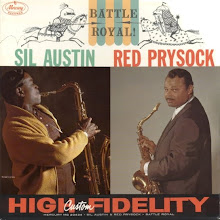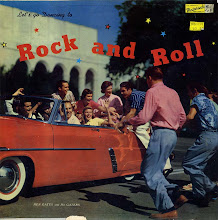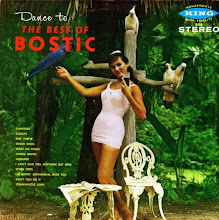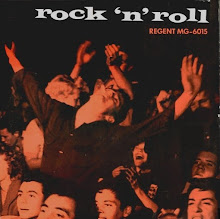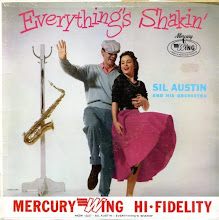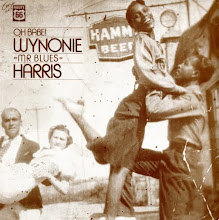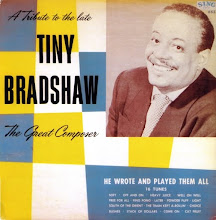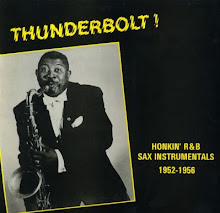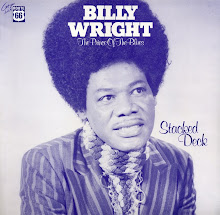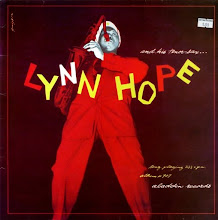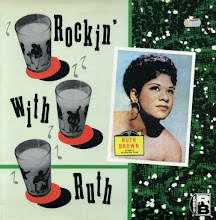Side 1:
01) Going To Chicago Blues
02) You Betcha My Life
03) Down, Down, Down
04) Tune Town Shuffle
05) I'm Tired Of Waiting For You
06) One-Two-Three-O'Lairy
07) Basie Boogie
08) Fancy Meeting You
Side 2:
01) Digging For Dex
02) My Old Flame
03) Fiesta In Blue
04) Tom Thumb
05) Take Me Back, Baby
06) King Joe (Part I)
07) King Joe (Part II)
Side 3:
01) Moon Nocturne
02) Something New
03) I Struck A Match In The Dark
04) Platterbrains
05) All Of Me
06) Feather Merchant
07) Down For Double
Side 4:
01) More Than You Know
02) Harvard Blues
03) Coming-Out Party
04) One O'Clock Jump
05) Blue Shadows And White Gardenias
06) 'Ay Now
07) Basie Blues
We step back a couple of years from the previous post of early Savoy sides which were mainly recorded in 1944. This time we're having a look at the Count Basie recordings for Columbia / Okeh in 1941-1942. For a selection of 1930s Basie recordings for Decca, see this post -
https://bebopwinorip.blogspot.com/2019/01/count-basie-and-his-orchestra-swingin.html
By the time of the recordings on this 2LP set, the Basie band could no longer boast the twin tenor sax threat of Herschel Evans and Lester Young, but their replacements, Buddy Tate and Don Byas, grace the set with numerous excellent solos. The gatefold cover on this set not only has recording and release details, but also lists the solos on each track, so you can follow who exactly is playing what.
Like most of the big swing bands of the time, whether in a dance hall or a theatre, the Basie band would play a set which called for some romantic (or soppy) balladeering which perhaps hasn't worn well with age. Alto sax man Earl Warren warbles in the style of the day on numbers like "Fancy Meeting You" and "I Struck A Match In The Dark" while by way of contrast Jimmy Rushing's timeless blues shouting on numbers such as "Going To Chicago Blues" and "Take Me Back, Baby" has worn much better.
Albert McCarthy's book "Big Band Jazz" has an amusing story about "I Struck A Match In The Dark" which was something of a hit for the band and was a big set piece in their live performances. The lights would be turned down, Earl Warren would step forward to the microphone, sing the opening line, and strike a match. One time at the Apollo, drummer Jo Jones, fed up with the whole farago, soaked the matches in water and the audience in the darkened theatre was treated to the frantic sound of match after match being struck in vain.
A noted feature of this collection is the guest appearance by Paul Robeson on the two part tribute to heavyweight champ Joe Louis, "King Joe." His operatic style is an unusual addition to big band swing.
The big bands were the "nurseries" for a generation of musicians who would go on to feature in small group jazz, bebop, and rhythm and blues through the late 1940s and 1950s. In the Basie group we have Buddy Tate, Don Byas, Tab Smith, Earl Warren and Jimmy Rushing, all of whom would remain substantial names after big band swing ceased to be the most popular style of music. Don Byas in particular was an important participant in the New York club scene from 1943 to 1946 and went on to record some excellent small group sides for the Savoy label. That could be our next post!
https://bebopwinorip.blogspot.com/2019/01/count-basie-and-his-orchestra-swingin.html
By the time of the recordings on this 2LP set, the Basie band could no longer boast the twin tenor sax threat of Herschel Evans and Lester Young, but their replacements, Buddy Tate and Don Byas, grace the set with numerous excellent solos. The gatefold cover on this set not only has recording and release details, but also lists the solos on each track, so you can follow who exactly is playing what.
Like most of the big swing bands of the time, whether in a dance hall or a theatre, the Basie band would play a set which called for some romantic (or soppy) balladeering which perhaps hasn't worn well with age. Alto sax man Earl Warren warbles in the style of the day on numbers like "Fancy Meeting You" and "I Struck A Match In The Dark" while by way of contrast Jimmy Rushing's timeless blues shouting on numbers such as "Going To Chicago Blues" and "Take Me Back, Baby" has worn much better.
Albert McCarthy's book "Big Band Jazz" has an amusing story about "I Struck A Match In The Dark" which was something of a hit for the band and was a big set piece in their live performances. The lights would be turned down, Earl Warren would step forward to the microphone, sing the opening line, and strike a match. One time at the Apollo, drummer Jo Jones, fed up with the whole farago, soaked the matches in water and the audience in the darkened theatre was treated to the frantic sound of match after match being struck in vain.
A noted feature of this collection is the guest appearance by Paul Robeson on the two part tribute to heavyweight champ Joe Louis, "King Joe." His operatic style is an unusual addition to big band swing.
The big bands were the "nurseries" for a generation of musicians who would go on to feature in small group jazz, bebop, and rhythm and blues through the late 1940s and 1950s. In the Basie group we have Buddy Tate, Don Byas, Tab Smith, Earl Warren and Jimmy Rushing, all of whom would remain substantial names after big band swing ceased to be the most popular style of music. Don Byas in particular was an important participant in the New York club scene from 1943 to 1946 and went on to record some excellent small group sides for the Savoy label. That could be our next post!
Elsewhere On The Blog:





























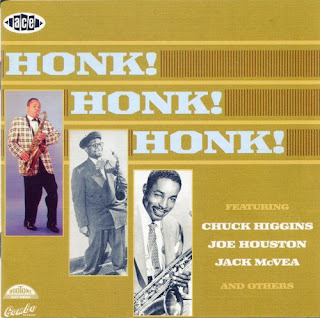







































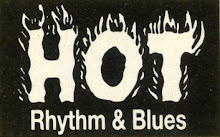
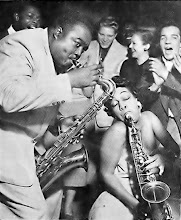





%2045%20-%20801B.png)
.jpg)

















